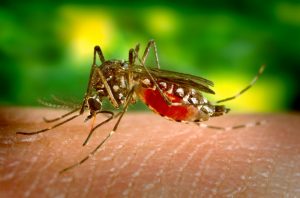
GAINESVILLE, Florida — Dr. Sadie Ryan (Assistant Professor of Medical Geography in the Department of Geography and UF’s Emerging Pathogen Institute) and colleagues, have just received a National Science Foundation (NSF) Division of Environmental Biology’s Ecology and Evolution of Infectious Diseases (EEID) Program rapid response, or RAPID grant to study the socio-ecology and climate responses of Zika virus transmission by Aedes aegypti mosquitoes in southern coastal Ecuador. By analyzing blood samples, deploying climate sensors, and conducting socio-ecological surveys, the researchers will gain insight into the spread of Zika as climate, altitude and socioeconomic levels change.
The research team has extensive experience studying vector-borne illness in Ecuador. Lab work will be based at the Pontificia Universidad Católica del Ecuador (PUCE), which was recently ranked as Ecuador’s top research institution in Nature Publishing Group’s 2016 Annual Index.
The collaborative research team includes experts in epidemiology, public health, ecology, entomology, mathematical modeling, and geography: co-principal investigator Sadie Ryan (University of Florida), lead investigator Anna Stewart Ibarra (SUNY Upstate Medical University), co-principal investigator Marco Neira (Pontificia Universidad Católica del Ecuador (PUCE)), and Timothy Endy (SUNY Upstate Medical University). The work expands upon Dr. Ryan’s prior work with the Center for Global Health & Translational Science at SUNY-Upstate Medical University.